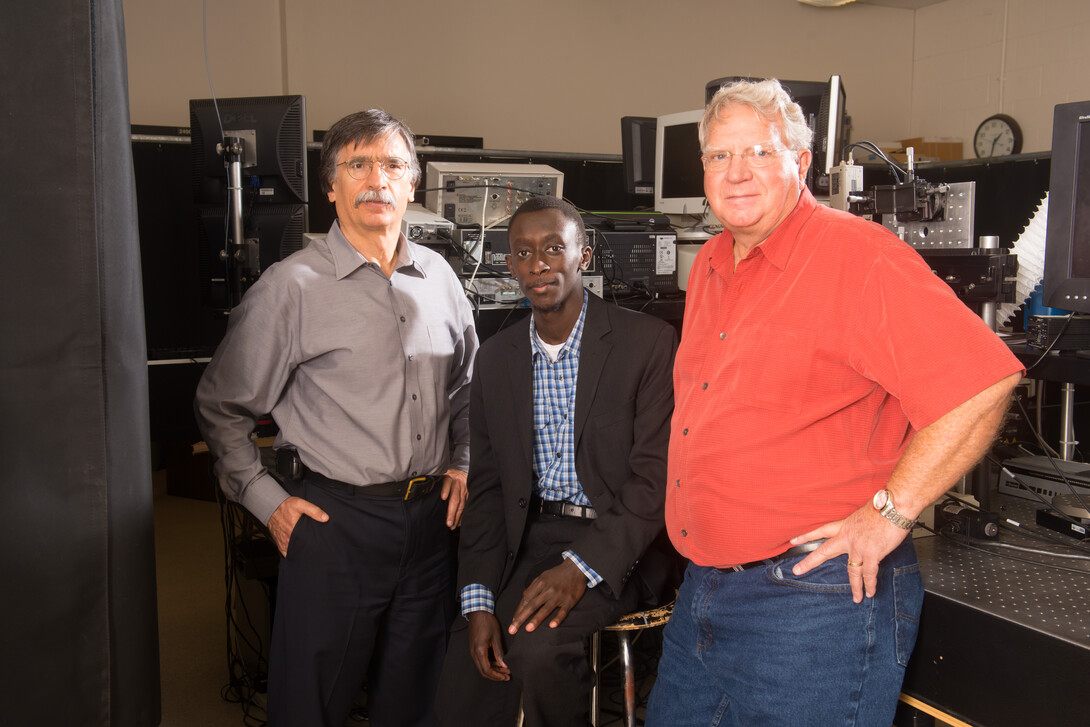
A UNL team of engineers has earned nearly $1 million to research the fashioning of metallic surfaces to help spacecraft operate more efficiently.
The university’s Center for Electro-Optics and Functionalized Surfaces received a $563,131 NASA Nebraska EPSCoR grant, as well as a combined $375,000 from the mechanical and materials engineering and electrical engineering departments and UNL’s Office of Research and Economic Development.
The group is led by Dennis Alexander, professor of electrical engineering; George Gogos, professor of mechanical and materials engineering; Sidy Ndao, assistant professor of mechanical and materials engineering; Troy Anderson, research assistant professor of electrical engineering, and Craig Zuhlke, a post-doctoral research assistant in electrical engineering.
The project involves the functionalization of metallic surfaces – the treatment of a surface with a quick-pulse laser to change the makeup of its microstructures and nanostructures to give the metal different and, sometimes, desirable properties.
In this case, the research is geared toward increasing the ability of high-efficiency thermal management systems in space. That includes allowing gas turbine engines, which operate at extremely high temperatures, to perform at even higher temperatures.
Ultimately, the work would help thermal management of NASA purposes by using titanium and silicon carbide in the functionalization process and improve heat management during space travel, among many possible applications for other industries.
“It’s expected that the (functionalized) surfaces would help in saving energy, having better engines and making more comfortable environments for astronauts in space,” Ndao said.
By functionalizing surfaces such as stainless steel, researchers create more effective coatings than polymers such as Teflon, Alexander said.
The group is also researching processes to improve heat transfer to keep other equipment, such as electronic devices, from overheating.







